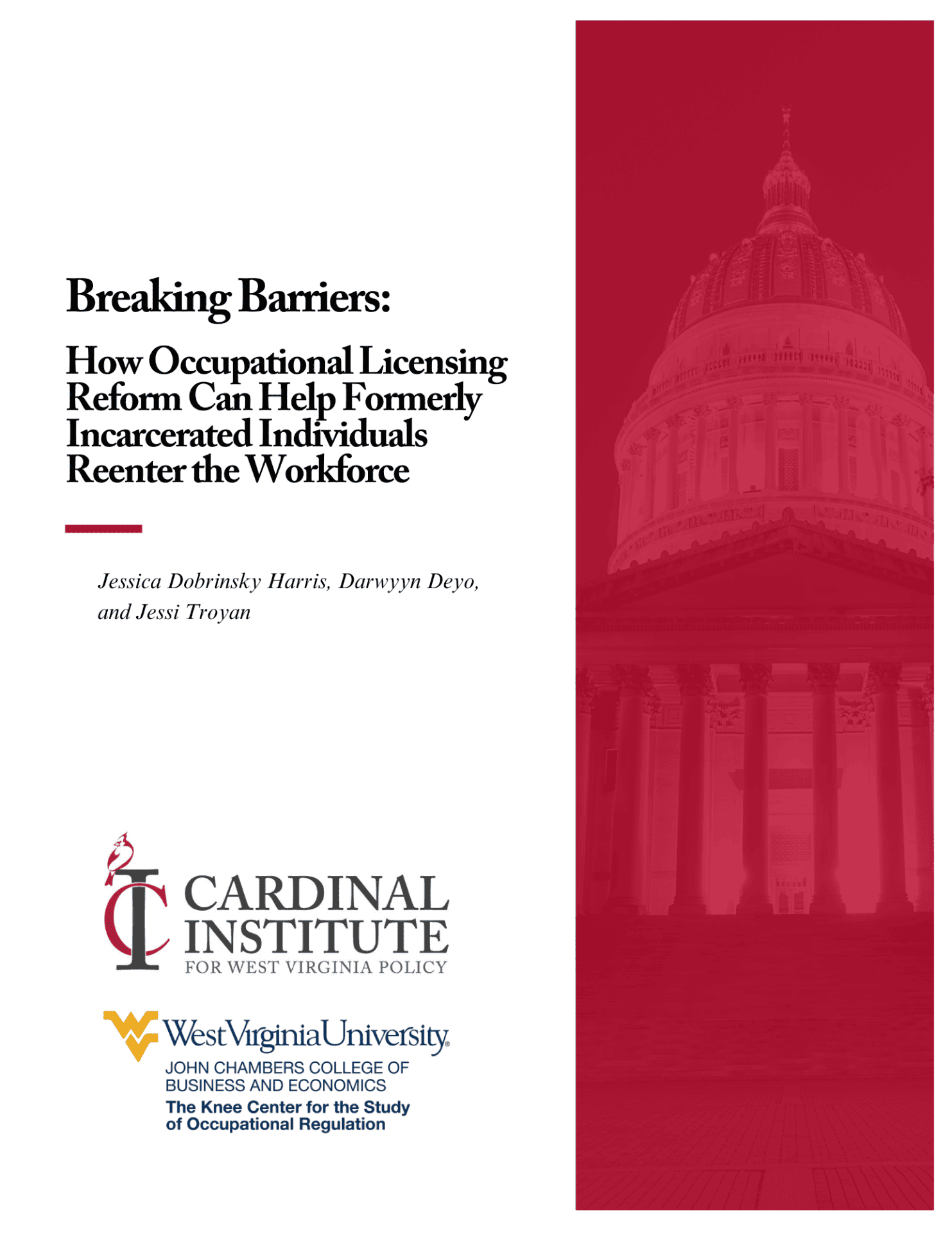INTRODUCTION
Nationwide, states regulate a variety of professions, from barbering to interpreters to travel guides with occupational licensing. Under this labor market regulation, aspiring workers must receive a permission slip from the government to work in their chosen occupation. Advocates claim these regulations protect the public, but scholarly research finds that occupational licensing makes it harder for people to work without clearly achieving its stated goals[i] of protecting public health and safety.
Licensure increases the cost[ii] of goods and services and directly burdens those who seek upward economic mobility through meaningful employment by restricting entry into an occupation. Studies have shown that licensing barriers can even have the unintended consequence of increasing crime by making it harder for people to work. As some licensing laws also prohibit people with criminal records, including misdemeanors[1], from working in the occupation at all, licensing can also make it harder for formerly incarcerated individuals to reenter the workforce. Known as collateral consequence laws, these barriers can have pernicious effects on both employment and crime.
Today, thanks to the combined growth of occupational licensing and mass incarceration, thousands of West Virginians are effectively barred from pursuing a renewed sense of hope and prosperity. Seventy years ago, only 5%[iii] of workers required a license in the United States. Today, almost 22%[iv] of all U.S. workers, and 24% of West Virginians, need a license for their job. Meanwhile, the state incarceration rate is 731 per 100,000 people[v], (compared to 531 per 100,000 nationally) including jails, prisons, and juvenile justice facilities. The recidivism rate[vi] is 24%, with 42% of recidivism due to new criminal offenses and the rest from parole violations. Licensing laws that stop people from working – even if they have completed all the requirements and have turned their lives around – can make it that much harder for people to make a fresh start. In this policy report, we outline the state of collateral consequences for occupational licensing in West Virginia and provide recommendations for further reform.
FOOTNOTE
[1] West Virginia’s code language does not specify that only felony offenses can be considered. The language used stays at “conviction” with a level unspecified. Outside of WV, for example, Vermont allows boards to deny licenses for misdemeanors and other crimes if the offense is “related” to the license sought.
AUTHORS
Jessica Dobrinsky Harris, former Policy Fellow for the Cardinal Institute for West Virginia Policy.
Darwyyn Deyo, Senior Research Fellow with the Knee Center for the Study of Occupational Regulation.
Jessi Troyan, Director of Policy & Research for the Cardinal Institute for West Virginia Policy.


